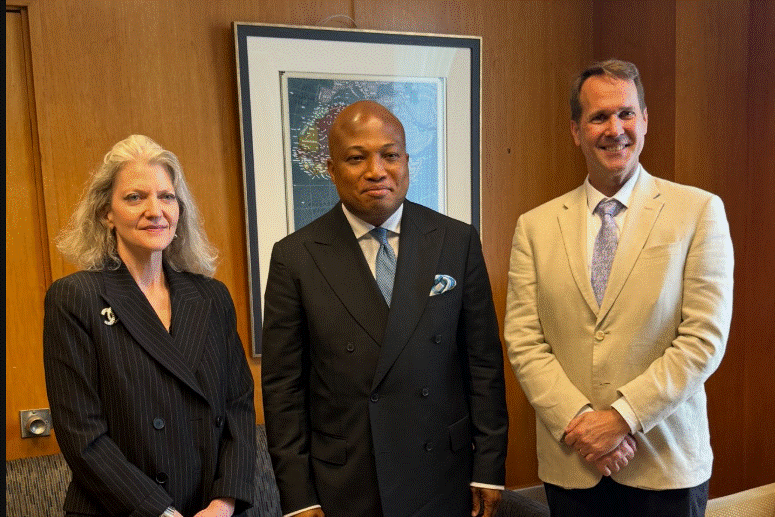We’re working to ensure Ghana is not affected by impending US visa ban – Ablakwa

Washington D.C., June 30, 2025 – Ghana’s Minister of Foreign Affairs, Samuel Okudzeto Ablakwa, has confirmed holding crucial diplomatic engagements with senior US officials amid rising concerns over Ghana’s inclusion in a potential US visa ban list.
In a high-profile meeting at the US State Department, Mr. Ablakwa was hosted by Under Secretary for Political Affairs Allison M. Hooker and Ambassador Troy Damian Fitrell of the Bureau for African Affairs. The discussions focused on bolstering Ghana-US bilateral relations and addressing the looming visa restrictions under consideration by the US government.
In a post shared on X (formerly Twitter), the Foreign Minister reassured the public that the Mahama administration is taking “all necessary and strategic steps” to ensure Ghana is not adversely affected.
“President Mahama’s government is determined to take all necessary and strategic steps consistent with our national interest in ensuring that Ghana is not affected by the much-talked-about impending US visa ban,” Ablakwa wrote.
The diplomatic engagement follows reports by The Washington Post indicating that the Trump administration is weighing a visa ban on Ghana and 35 other countries as part of new travel and immigration controls.

21% Overstay Rate Among Ghanaian Students
Addressing the press on June 26, Mr. Ablakwa disclosed that US authorities had flagged Ghana due to a 21% default rate among Ghanaian students who overstay their visas after completing their education.
“They have formally communicated to us that 21% is the default rate. 21% of those who completed their course refuse to return, according to US data,” he stated.
The US reportedly considers countries with an overstay rate above 15% as non-compliant, warranting possible visa restrictions.
While Ghana’s main issue relates to student visa overstays, Ablakwa confirmed that the country does not fall under more serious concerns such as terrorism, criminal harbouring, or deportation refusal.

“The engagements are going well because US authorities have confirmed to us that apart from overstays, other matters to do with terrorism, harbouring criminals and refusing to be deported — we don’t fall within that category,” he assured.
The US has outlined 12 criteria for determining visa ban eligibility, including:
- Terrorism financing
- Violent extremism
- Lack of cooperation on deportations
- Excessive visa overstays

Despite the concerns, Mr. Ablakwa struck an optimistic tone, indicating that Ghana’s dialogue with US officials has been constructive.
“We expect a positive outcome for Ghana and the strengthening of Ghana-USA relations. For God and Country,” he concluded.
Ghana’s Foreign Ministry is expected to follow up with more engagements in Washington and with the US Embassy in Accra. Analysts say the resolution of this issue will require policy reforms, better tracking of students abroad, and enhanced cooperation with US immigration authorities.




